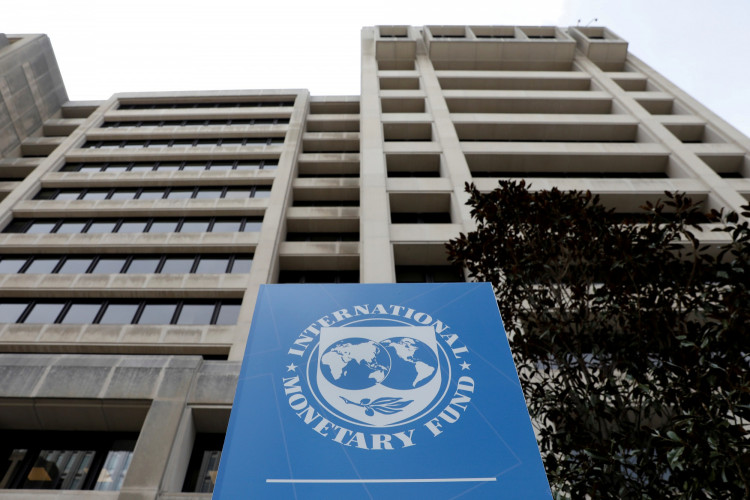With a wary eye on COVID-19, the International Monetary Fund (IMF) has forecast a more optimistic 5.5% expansion of the global economy this year as governments spend heavily on recovery.
The upward revision in the IMF's latest World Economic Outlook published Tuesday is 0.3 percentage point higher than an outlook published in October. The IMF sees global gross domestic product (GDP) expanding by 4.2% in 2022.
A big part of the global growth boost is the ongoing rebound by China, the world's second largest economy expected to expand at an 8.1% clip in 2021, which would be a sharp rebound from the 2.3% annual rate in 2020 after lockdowns early in the year because of the pandemic. China's economy is expected to grow 5.6% in 2022, the IMF said.
The IMF based its 5.5% global growth projection for 2021 expectations on a vaccine-powered economic recovery, mostly in rich nations. The upcoming recovery will also be fueled by policy support such as the Biden administration's pending $1.9 trillion coronavirus rescue package, and Japan's third supplementary budget providing more financial assistance to businesses, especially those in tourism.
The IMF projects the U.S. economy, the world's largest, to grow by 5.1% in 2021. It linked this two percentage point increase to the strong momentum from a recovery in the second half of 2020. A $900 billion fiscal support rescue package hastily approved in December also helped stoke growth last year.
IMF chief economist Gita Gopinath said the outlook will likely improve further if the U.S. Congress passes the $1.9 trillion relief package proposed by Biden. She said the IMF predicts a 5% boost over three years if the package passes muster in the deeply divided U.S. Congress.
The IMF forecast a 2020 global contraction of 3.5%, which is 0.9 percentage points lower than the 4.4% slump predicted in October because of the more robust growth in the second half of last year.
Then, of course, there are the massive uncertainties presented by COVID-19 that have to be contended with.
"Much now depends on the outcome of this race between a mutating virus and vaccines to end the pandemic, and on the ability of policies to provide effective support until that happens," said Gopinath in a blog post.
"There remains tremendous uncertainty and prospects vary greatly across countries."
Gopinath worries about the risk the new and more contagious variants of COVID-19 such as those found in the United Kingdom and South Africa pose to the post-pandemic recovery. The world is also seeing no let-up in the continuing wave of infections.
On Tuesday, Johns Hopkins University announced the world's total number of infections since the pandemic began had exceeded 100 million along with more than two million deaths. The United States, India, Brazil, Russia and the United Kingdom lead the world in the number of confirmed cases.
The IMF sees the global economy growing by $9 trillion between 2020 and 2025 if faster progress is made in ending the crippling pandemic. Gopinath said it's clearly in the interest of rich economies to help poorer countries recover.
"There's a complete economic sense to do this, and do it right now," she said to Reuters.
Gopinath said Biden's pledge to fund the World Health Organization's COVAX vaccine initiative is "a very big step" to contain the pandemic and ensure more equitable distribution of vaccines.
"Much more will be needed, because as we can see, given the mutating virus that this is not a problem that's going away anytime soon," Gopinath told a news conference.
"There is still a tremendous amount of uncertainty," she told Reuters in a separate interview. "We know that the health crisis is not over until it's over everywhere."






